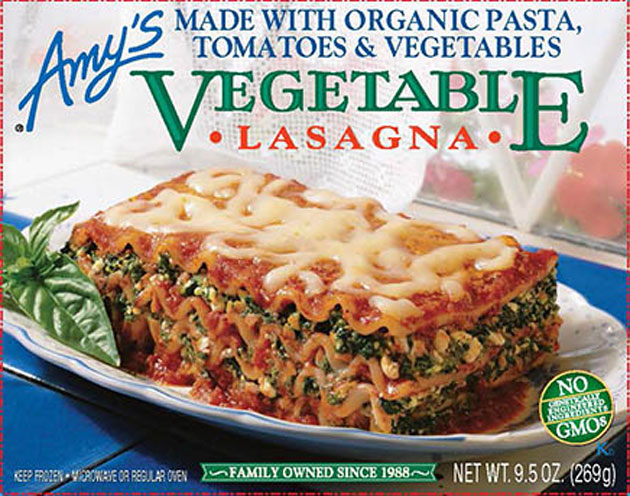Amy's Kitchen Recall: Some Products May Be Contaminated with Listeria

The organic food company Amy's Kitchen is recalling a number of its frozen food products because the spinach in them may be contaminated with Listeria bacteria, according to a press release from the company.
Amy's Kitchen said it was notified by one of its suppliers that some of the spinach the company received may have been contaminated with the bacteria Listeria monocytogenes.
Out of an abundance of caution, the company said, it is recalling more than 73,000 cases of products that contain spinach from that supplier, including Vegetable Lasagna, Spinach Pizza and Tofu Scramble. The company said it is so far not aware of anyone becoming sick after eating one of the recalled products.
A full list of recalled products, along with their UPC codes, can be found on the Food and Drug Administration's website.
Listeria can cause serious illness in older adults, pregnant women, newborns and people with weakened immune systems. The bacteria can also affect people without these risks factors, but this is rare, according to the Centers for Disease Control and Prevention. [Top 7 Germs in Food that Make You Sick]
Symptoms of Listeria infection include fever, muscle aches, diarrhea, stiff neck, confusion, loss of balance and convulsions. In pregnant women, the illness can lead to miscarriage, stillbirth or premature birth, the CDC says.
People who purchased the recalled products should throw them away, or return them to the store where they bought them for a full refund, Amy's Kitchen says. People can also call the company at 707-781-7535.
Sign up for the Live Science daily newsletter now
Get the world’s most fascinating discoveries delivered straight to your inbox.
Follow Rachael Rettner @RachaelRettner. Follow Live Science @livescience, Facebook & Google+. Original article on Live Science.

Rachael is a Live Science contributor, and was a former channel editor and senior writer for Live Science between 2010 and 2022. She has a master's degree in journalism from New York University's Science, Health and Environmental Reporting Program. She also holds a B.S. in molecular biology and an M.S. in biology from the University of California, San Diego. Her work has appeared in Scienceline, The Washington Post and Scientific American.









